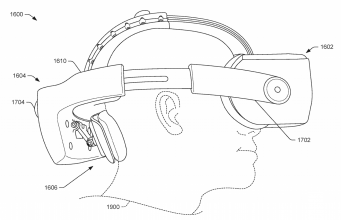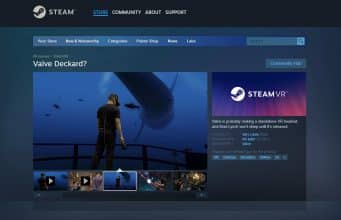Valve is “still working on VR and still pushing forward on it”
Valve unveiled its Steam Deck OLED late last week, offering up a hardware refresh for the first time since the company launched the handheld gaming device last year. While the company has been full steam ahead on handhelds and developing Steam OS, Valve says it’s “still pushing forward” on VR.
Valve ostensibly has a standalone VR headset in the works, and although there wasn’t any big announcement (or acknowledgement) of what the company has in store just yet. Talking to Norman Chan of Tested though, it was revealed the company is still working on VR.
In an interview, Valve designer Lawrence Yang spoke about the overlap between Steam Deck’s design relative to its VR efforts:
“There’s a lot of things [informing hardware decisions]. Working with an APU, working with miniaturization of computers. We don’t have anything to announce today in terms of a VR other than we are still working on VR, and we’re still pushing forward on it. Just like Steam Deck is learning a bunch of stuff from controllers and VR, future products will continue to learn from everything we’ve done with Steam Deck.”
“Obviously there’s a lot of overlap, from technology pieces that we can use; wireless streaming is very applicable to VR. That benefitted Steam Deck as well in improving the wireless experience. But also from just establishing relationships with part suppliers, hardware partners, and that kind of stuff. The SteamVR team and the Steam Deck team work together. There’s a lot of inoculation of ideas, parts and technologies.”
At Steam Deck’s initial launch in February 2022, Valve chief Gabe Newell told Edge Magazine that Steam Deck represented a “steppingstone” to portable VR for the company thanks to its battery-capable, high-performance horsepower.
More recently, the company released its long-awaited SteamVR 2.0 which drastically upgraded the platform’s VR interface. Whether this is in preparation for an upcoming VR standalone headset remains to be seen; it’s certainly a knock-on effect of improvements made specifically for Steam Deck’s UI.
You can check out the full breakdown of Steam Deck OLED in the Tested video below:
Valve is “still working on VR and still pushing forward on it” Read More »


